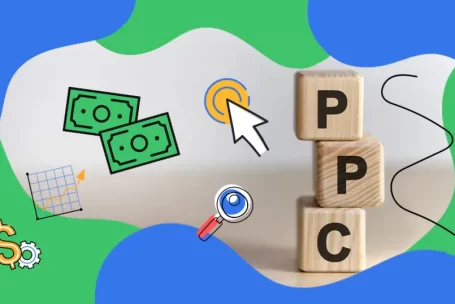When optimising a website for search, what impact do meta and title tags have on the search engine? If you’re looking for the answer to this question, you’re in the right place!
Meta tags are a crucial part of search engine optimisation since they tell a search engine what your site is about. It will also assist you in appearing in the preview portions of search engine results.
The meta and title tags are invisible instructions that tell the search engine what the page is about. In this article, we’ll talk all about meta tags and explain how they can improve your website’s search engine rankings.
What are meta tags? When optimising a website for search, what impact do meta and title tags have on the search engine?
The purpose of meta tags is to describe the nature of your material. It’s not part of the actual text but rather the HTML code that makes up the page.
Search engines look to the source code when deciding where your pages should appear in response to a particular query in their indexes.
To see if a website employs meta tags, right-click anywhere in the page’s content and select “View Page Source” from the menu that appears. If the page uses meta tags, you will see something similar to what is seen above.
How many types of meta tags are there?
While there are numerous possible meta tags, the top priority should be the following six. While the use of certain meta tags may no longer be beneficial, there are others that, if used regularly, can boost website traffic.
Here are the six varieties of meta tags discussed in details:
1. Title Tags
When it comes to search engine results, the title tag is by far the most influential meta tag. They are the initial pieces of text that users encounter in search results and on the tabs of their browsers. Improving your site’s search engine rankings is as simple as tweaking your title tag.
In terms of SEO, nothing is more important than the title tag. It’s the only meta tag that visitors may actually see, along with the description. The title appears prominently on the tab of the browser and as the first item in the search results.
Your website’s purpose should be stated in the first tag of the HTML document, the title tag. All popular browsers have full compatibility.
2. Meta description
An HTML tag, known as a meta description, provides a synopsis of your website or blog’s content. The meta description is not always considered by Google when determining search engine rankings.
However, if the description is compelling enough, users will be more likely to go over to your site, which will boost ranks.
The meta description is shown by search engines under the title tag. However, there is no assurance that the meta description you entered will be used.
3. Meta robots
You are able to give instructions to search engines on how to crawl your pages by using the meta robots attribute. Both the Index and
No Index attributes indicate whether or not you want your page to be indexed in search results. The Follow and No Follow attributes show whether or not search engines are able to trust your links and follow them to the other page.
4. Alt text tag
Because search engines are unable to interpret picture content, the Alt Text tag is an essential tag to employ. If you don’t do it, search engines won’t know how to interpret your results.
You will also be listed in image searches for a specific query if you add alt text tags to the photos you upload to your website. Utilising your targeted keywords in the alt-text of your images is another fantastic technique.
5. Open Graph and Twitter meta tags
In order to connect your website with social media platforms like Facebook and Linked, you can utilise Open Graph meta tags. In a similar vein, you may connect your Twitter account to your website by using meta tags.
When someone shares your page on one of these services, the information will be presented alongside a stylish UI code. There will be a small image, a title, some text, and a link to your website.
Even though these tags won’t directly affect your search engine rankings, they will guarantee that your social media shares are informative. Your CTR will improve as a result of this.
6. ViewPort tags
By accommodating a wide range of screen sizes, you can guarantee a top-notch user experience. A well-designed page can keep visitors interested for much longer than one with shoddy visuals.
Remember that responsive design is crucial, but it may slow your pages down a little bit. Make sure your page is optimised for speed before applying this to provide your users with the best possible experience.
When optimising a website for search, what impact do meta and title tags have on the search engine: Detailed reasons
You should use meta tags on your website for the following reasons:
1. Meta tags help search engines find you
Using proper meta tags increases your website’s chances of being displayed in relevant search engine results by indexing your content with the appropriate searches. If you want higher search engine rankings, this is a must.
2. Rank for the correct keywords
You can get a higher search engine ranking for your target keywords with the use of meta tags. You can improve your page’s search engine rankings by including well-chosen keywords in its meta tags. Users are more likely to click on your website if it has information directly related to their search.
3. Improved user experience
Meta tags have multiple purposes: they assist search engine spiders in indexing your site, they help you organise your content for human readers, and they help you give visitors useful information.
Users can quickly ascertain if your page is relevant to their needs in this way. Meta tags can assist in making your material more readable by breaking up the page’s text, which can enhance your search engine rankings and keep visitors on your site for longer.
In the end: When optimising a website for search, what impact do meta and title tags have on the search engine?
However, not all meta tags contribute to higher search engine rankings. The 6 meta tags I’ve included here, however, are essential and should be included on each page of your website.
While some of these meta tags will have an effect on how the search engine ranks your site, others will have an effect on how users experience your site.
Your page’s ranking is heavily influenced by user interaction and click-through rates. That’s why it’s important to think about all six meta tags. If you’re wondering which of the following would be an ideal goal for an SEO plan, we can help you.
Notion Technologies can help in optimising a website for search with the impact meta and title tags have on the search engine. Contact us to know more about our services!



